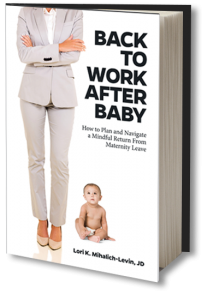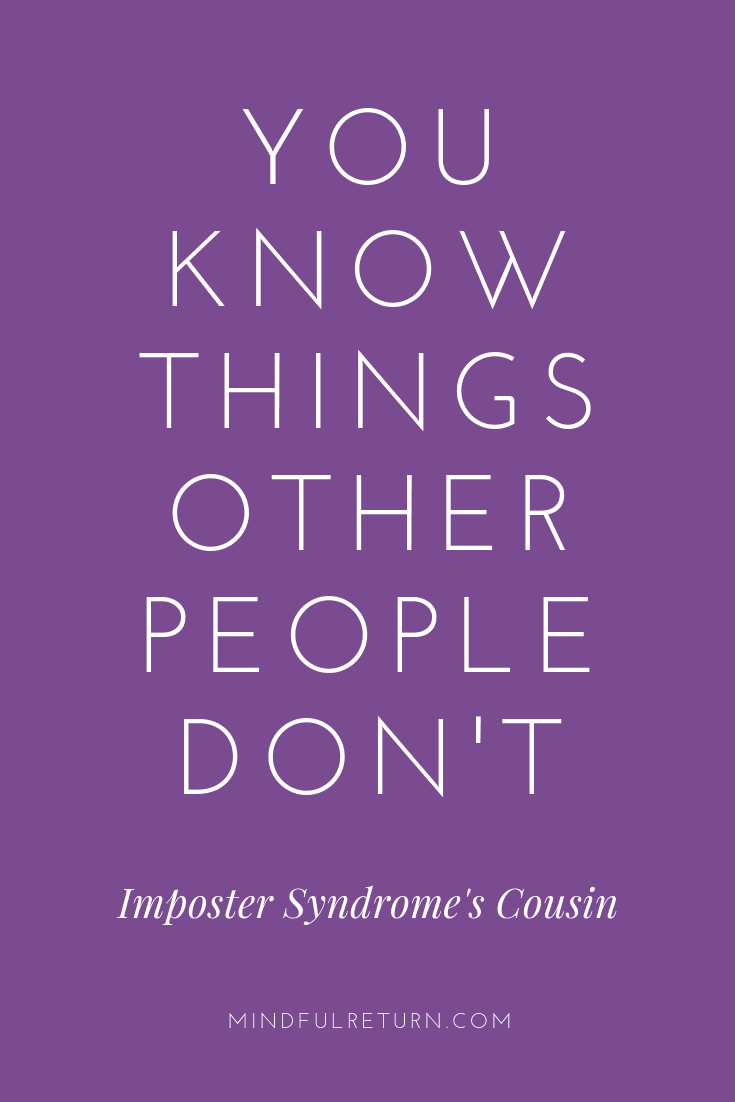 I have a secret for you: you know things that other people don’t. Yes, indeed. What you are sharing with the person in front of you is probably news to them. My other secret? This phenomenon of not recognizing our own unique knowledge holds us back.
I have a secret for you: you know things that other people don’t. Yes, indeed. What you are sharing with the person in front of you is probably news to them. My other secret? This phenomenon of not recognizing our own unique knowledge holds us back.
Last week, my husband, Jason Levin, a career coach, came home from leading a workshop for a finance team at a big corporation. His talk was about personal brand, mentorship, and sponsorship, which are some of his bread-and-butter topics. “I was so surprised about how much of what I was talking about was completely new to them,” he said in wonder. “I’m always shocked that the things I think are obvious or well-known are things people haven’t even thought about before.”
The following morning, I observed myself having identical thoughts. I was sitting in a session of a women’s leadership coaching program, and the leader of the session, an amazing facilitator named Susan Dunlap, read a Mary Oliver poem as part of a “centering” exercise. (Wild Geese, for those wondering.) After reading the poem, she asked who had heard of Mary Oliver. And I was the only person to raise my hand.
“Wait, what?!” I said to myself. Mary Oliver’s poetry – in particular The Journey– carried me through so many challenges in life, that I simply assumed she was a household name.
Then, later that afternoon, I sat down to record an episode of the Parents at Work Podcast, and once again I found myself strangely surprised that everyone hadn’t heard of The Better Life Lab or the Atlantic article about “ending secret parenting.” What was going on here? Was I oblivious or delusional about my own experience?
I was seeing a trend I didn’t think was a positive one, but I couldn’t quite put my finger on the harm it was causing. It felt a little bit like imposter syndrome. But when I looked up the definition of imposter syndrome, this experience didn’t quite fit.
Imposter Syndrome’s Cousin?
According to a New York Times article by Kristin Wong entitled “Dealing with Imposter Syndrome When You’re Treated as an Imposter,” psychologists Pauline R. Clance and Suzanne A. Imes coined the term “imposter syndrome” in 1978, describing it as “internal experience of intellectual phoniness in people who believe that they are not intelligent, capable or creative despite evidence of high achievement.”
Times author, Kristin Wong, aptly paraphrases by saying “it’s that sinking sense that you are a fraud in your industry, role or position, regardless of your credibility, authority or accomplishments.”
I agree wholeheartedly that imposter syndrome is a problem. But that’s not exactly what’s going on here. I’m not saying I don’t believe I’m good at my job or capable of making an impact.
I’m simply saying I’m not bringing anything new to the table. Certainly there are similarities in terms of feeling as though our contributions aren’t valuable. But I think the phenomenon I’m describing is a cousin to imposter syndrome, rather than being the syndrome itself.
I don’t have a name for this thing I’m trying to articulate. Perhaps someone has already coined one (if you know it, please leave a note in comments!). But for purposes of this piece, let’s call it the “Nothing New Here Syndrome.” (I toyed with naming it the “I’m not special,” syndrome, but “special” felt like too loaded a term.)
Turns Out, “Nothing New Here” is One of the “Big Fears”
Assuming things about the person sitting across from us is, of course, a natural human tendency. For good and for ill, we do it all the time.
But it turns out a narrative in our head that assumes we don’t add anything new to the conversation is actually a version of a fear. I’m in the thick of reading Tara Mohr’s book, Playing Big: Practical Wisdom for Women Who Want to Speak Up, Create, and Lead. (HIGHLY recommend!) In her chapter entitled “The Inner Critic,” she quotes choreographer Twyla Tharp’s list of 5 “big fears” she has to ignore, lest they stifle her creativity.
Two of these five “big fears” are “I have nothing to say,” and “someone has done it before.”
AHA! That’s exactly what the “Nothing New Here” syndrome is about. It’s a voice telling us we shouldn’t speak up. That our skills really aren’t that unique. A voice that says we should stay quiet, and play small. Because really, we have nothing to add. Our contribution won’t add much value to others.
My husband acknowledged that these assumptions have kept him from pitching his workshop on personal brand and mentorship/sponsorship to more audiences. By assuming everyone already knew what he knew, he questioned the value of his own insights. Yet it turns out, these insights were extremely valuable to a group of finance folks who were hungry for exactly the type of material he was providing them.
You Bring Something (LOTS of Things) to the Table
I get the question all the time from the moms who take the Mindful Return course, “what if going out on maternity leave proves my colleagues actually don’t need me at work?”
This sentiment reflects the idea that you don’t bringing anything unique to your job. That if someone could fill in for you (adequately) in your absence, then your position isn’t justified.
Guess what, mamas: you bring lots of things to the table. Your background and experiences are uniquely yours. And you add a perspective to each conversation at work that wouldn’t be available without your presence.
I promise you that right now, for example, you are oblivious of many of your own skills. And that you’re probably taking for granted the fact that parenthood has honed your own leadership talents. (Here’s a reminder of some of those skills gained through parenthood, should you need it.)
The next time you hear yourself saying, “oh, they already know that,” or “I’m not adding anything new to the conversation,” pause for a moment. Ask yourself: “Is that true? Or could it be an assumption simply masquerading as a fear?”
The moment you shine a light on that “Nothing New Here” fear, it loses its power. It may be true that there is “nothing new under the sun.” But that doesn’t mean your information is not new to the person sitting across from you. Or that what you dare to share may, in some way, change that person’s life.
 If you need more help getting your head in a better place to return to work after maternity leave, join us for the next session of Mindful Return.
If you need more help getting your head in a better place to return to work after maternity leave, join us for the next session of Mindful Return.
Want more practical tips on working parenthood? Check out my book, Back to Work After Baby: How to Plan and Navigate a Mindful Return from Maternity Leave



Great post Lori! I didn’t understand the “what if they don’t need me fear” until I was preparing for my first maternity leave. I always thought, of course we/they need you. But when you’re staring it in the face (and your hormones are completely out of wack), it’s really hard to convince yourself of that. I think looking at it like you described – of course they need you because your background and experiences are uniquely yours – is a great way to look at it that may help us get past that not-being-needed fear.
Thanks, Kelly! You are so right that it takes the prospect of an impending leave (or even a vacation) for that fear to become real. Appreciate your weighing in!